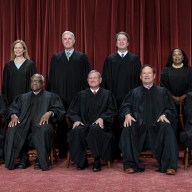In the past 20 years, the Canadian Forces has gone from being a homophobic organization that actively hounded out gay and lesbian members, to one of the world’s leading advocates of open integration.
Rana Sioufi, a spokeswoman for the Forces, says after abolishing the don’t ask, don’t tell policy in 1992, the armed forces no longer has a specific policy for gay and lesbian members and uniformed personnel regularly march in Pride parades and marry in base chapels.
“Members who are same-sex partners are entitled to the same respect and dignity as heterosexual married couples or common-law partners,” Sioufi says.
That’s a long way from the treatment Michelle Douglas received in 1989. She complied with the secretive policy by not revealing she was a lesbian, but the Special Investigations Unit kicked in the closet door.
Douglas was interrogated on the suspicion she was gay and ultimately dismissed on the grounds that she was “not advantageously employable due to homosexuality.”
“It was a very, very different time,” the Toronto woman says. “There was a sense that gays in the military were somehow tantamount to criminals. It was a really sad approach.”
Douglas fought back in court and her action led to the Forces abandoning don’t ask, don’t tell in 1992. That paved the way for rapid change.
“It was a very unpleasant experience at the time … but in the end, Canada did the right thing, and I’m very proud of that,” she says.
That experience is being studied carefully south of the border, where U.S. President Barack Obama is poised to repeal the don’t ask, don’t tell policy U.S. armed forces installed in 1993.
Halifax resident Jennifer Paty saw its effects first hand during her sparkling 20-year career in the U.S. Navy, which ended in 1994. The second she was out of the forces, she came out of the closet and has since fought hard against the policy.
“It was such a betrayal,” she says of the policy she believes forces people to lie about who they are and who they love. “It was heartbreaking.”
Paty, now a minister in the Safe Harbour Metropolitan Community Church, hopes the U.S. can follow her new home’s example.
















